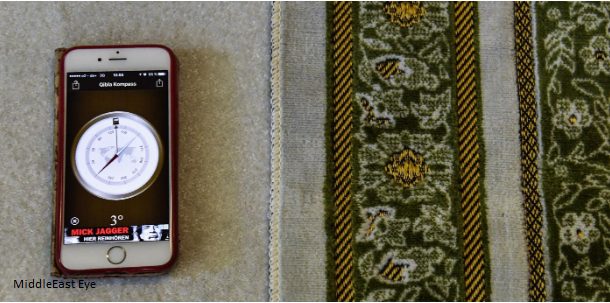Web Desk — Several Muslim prayer apps were removed from the Google Play Store after it was found that they contained hidden data-harvesting software developed by a US national security contractor.
The Wall Street Journal reported on Wednesday that Al-Moazin Lite and Qibla Compass were among several popular apps temporarily blocked by Google in late March.
The removals were prompted by Joel Reardon and Serge Egelman, university researchers who discovered the code while looking for vulnerabilities in Android apps.
Measurement Systems S. de R.L, a Panama-based company, paid developers to include its code in their apps, according to the Journal. This allowed the company to collect data from the apps’ users, including phone numbers, emails, and GPS coordinates, which they said could be used to track people’s movements.
In six years of examining mobile apps, Reardon and Egelman said this was the most privacy-invasive software development kit they had seen.
According to corporate records and domain registrations, Measurement Systems is linked to a Virginia-based defence contractor involved in intelligence work for US national security agencies.
The company told the Journal that it was not involved in the secret data harvesting or that it had connections to US defence contractors.
Among the apps involved in the scandal are Speed Camera Radar, WiFi Mouse, and a weather app popular in Iran.
Developers of Al Moazin in Egypt believe Measurement Systems collects data on behalf of internet providers, banks, and energy companies. The developers of Qibla did not respond to the Journal’s request for comment.
Google said that the banned apps could apply for reinstatement once the data-harvesting code was removed.
It was revealed in November 2020 that Muslim Pro, a prayer app downloaded 100 million times worldwide, had sold its data to a company that then sold the information to the US military.
In the wake of the “war on terror”, the news sparked an international outcry and reignited debate about the US government’s mass surveillance programmes on Muslims.
Salaat First, another popular Muslim prayer app, has been accused of selling users’ location data to a French company that previously worked with a US government contractor that worked with the FBI, ICE, and US Customs and Border Protection.




